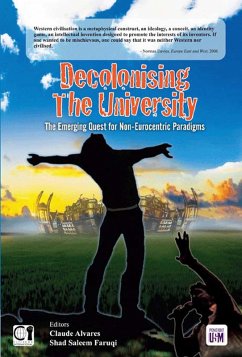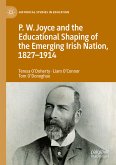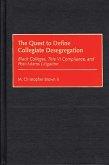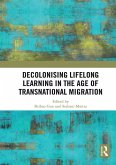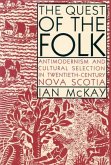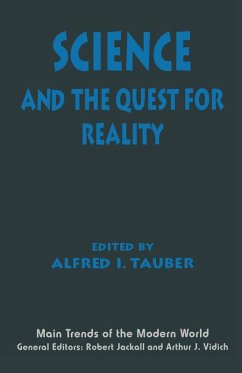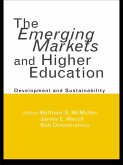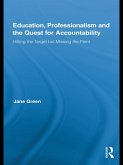This book of essays is a sequel to the 'International Conference on Decolonising Our Universities' held in Penang, Malaysia from June 27 to 29, 2011. The Conference was jointly organised by the Universiti Sains Malaysia and Citizens International in cooperation with the Higher Education Leadership Academy of the Malaysian Ministry of Higher Education. At the Conference, speaker after speaker pointed out that education in Asia and Africa is too Westcentric. It blindly apes European universities, European curricula and European paradigms. The papers in this volume examine possible ways of overcoming this problem of intellectual enslavement in Asian and African citadels of learning. It must be pointed out at the very outset that this book is not meant to be a tirade against the West. Its aim is not to ask Asian and African universities to shut out Europe and North America or to be insular or to wear blinds. Its aim is positive - to make Asian and African tertiary education truly global and at the same time socially relevant. This cannot be done unless the intellectual monopoly of the West is broken and European knowledge is made to make way for the review, teaching and expansion of the vast knowledge of other societies and cultures. European knowledge may supplement, but never replace, other valid knowledge systems and traditions. The book is divided into eight parts. Part I creates the setting, provides an overview of the state of our universities, reflects on decolonisation of our intellectual heritage and explains how colonial education was used to assault our cultures. Part II contains a wish-list of the decolonised university. There are essays on the philosophical basis of an African university and about how the sacred and the secular can be integrated and how the community can be brought back into the university. Part III critically examines the promise and performance of UNESCO in decolonisation of Asian and African institutions of higher learning. Part IV discusses eurocentrism in social sciences, in mathematics and in science curricula. Part V highlights the state of social sciences and the law today and provides an alternative discourse in social theory, history, psychotherapy, psychology, law and language education. Part VI discusses regional decolonising initiatives in the Philippines, Taiwan, Turkey and Iran. Part VII provides insights into some experiments in transforming academic pedagogy. Finally, Part VIII contains some personal journeys in decolonisation of the self. This book of essays is meant to coincide with Malaysia's Independence Day on August 31, 1957. The hope is that the timing will underline the point that the stains of cultural and intellectual imperialism do not end with the attainment of political freedom. Freedom is a state of the mind and, regrettably, throughout Asia and Africa, the enslavement of the mind has continued long after the coloniser has gone back home. This humiliating state of affairs must end, not only to give meaning to political independence but also to improve the quality of our education by giving to our students a better panorama of world knowledge and thereby to increase their choices. Decolonisation of our universities is not an exercise in flag-waving nationalism. Its aim is ameliorative. Diversity and pluralism of knowledge systems are vital for meeting many of the moral, social and economic challenges of the times and for avoiding the frightening economic, educational and cultural consequences of Europe's near-total intellectual and educational monopoly over Asia, Africa and Latin America. For example, Western models of development have proved to be a nightmare and have not served Asia and Africa well. Economic theories from the West have brought the whole world to the brink of an environmental catastrophe. Asian universities should offer a critique of the ethnocentrism of Western scholarship by pointing out that a middle class Western lifestyle and what that entails in terms of the nuclear family, the consumer society, living in suburbia and extensive private space may neither be workable nor desirable on a fragile planet. The humiliating story of intellectual enslavement in each field and in each region is best told in the words of the authors. What must be noted is the ways in which this subservience manifests itself. Our university courses reflect the false belief that Western knowledge is the sum total of all human knowledge. The books prescribed and the icons and godfathers of knowledge are overwhelmingly from the North Atlantic countries. Titles written by scholars and thinkers from Asia and Africa are rarely included in the book list. This may indicate a pervasive inferiority complex or ignorance of the contribution of the East to world civilisation. Any evaluation of right and wrong, of justice and fairness, of poverty and development, and of what is wholesome and worthy of celebration tends to be based on Western perceptions. Eastern ideas and institutions are viewed through Western prisms and invariably regarded as primitive and in need of change. Despite decades of political independence, the framework assumptions of our law, politics, economics, education, history, science, art and culture remain dictated by our former colonial masters.
Dieser Download kann aus rechtlichen Gründen nur mit Rechnungsadresse in A, B, BG, CY, CZ, D, DK, EW, E, FIN, F, GR, HR, H, IRL, I, LT, L, LR, M, NL, PL, P, R, S, SLO, SK ausgeliefert werden.

